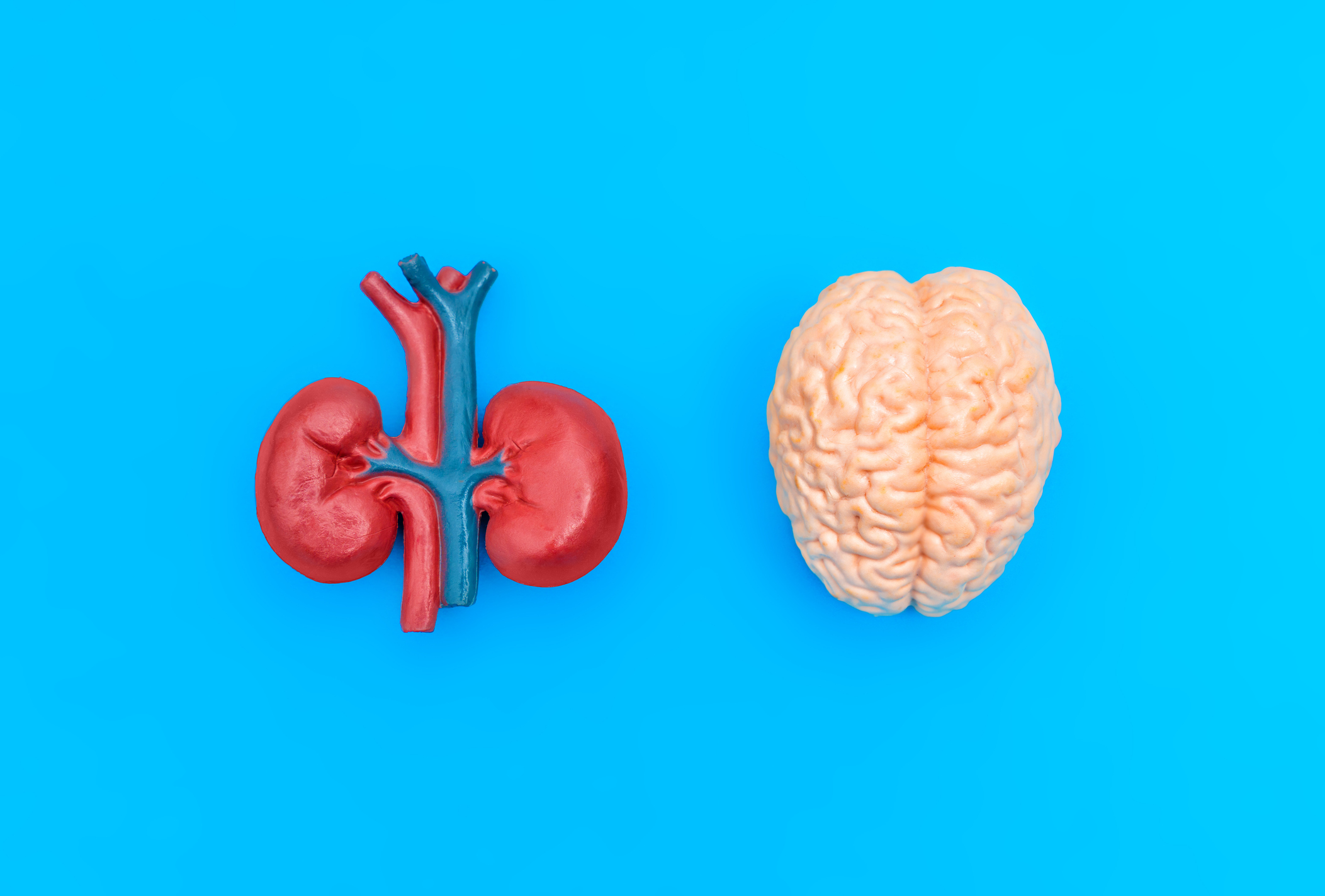Get Easy Health Digest™ in your inbox and don’t miss a thing when you subscribe today. Plus, get the free bonus report, Mother Nature’s Tips, Tricks and Remedies for Cholesterol, Blood Pressure & Blood Sugar as my way of saying welcome to the community!
The strange link between the kidneys and dementia

Despite their different functions, there is actually one similarity between the structure of the brain and the kidneys…
They both depend on a delicate network of blood vessels to supply blood, oxygen, and nutrients.
With these similarities comes danger. If the structure of one of these networks is damaged, it could do harm to the other. And that damage could lead to a disease dreaded by many as they age…
Your pee could tell the tale
It all starts with the kidneys and albumin, the most abundant protein in plasma, the liquid portion of the blood.
When they’re healthy, the kidneys don’t usually allow albumin to leak into the urine. So high albumin content in urine, a condition known as albuminuria, is a sign of kidney damage.
What does this have to do with the brain? Well, if the blood vessels to the kidneys are damaged, it could mean the same kind of damage is occurring in the brain’s blood vessels. This breach in the blood-brain barrier could allow toxic, inflammatory molecules to leak into brain tissues.
This can lead to vascular dementia, a condition usually caused by hypertension, diabetes or stroke. Vascular dementia is the second-most common form of dementia, behind Alzheimer’s disease, which accounts for 60 to 80 percent of all cases.
A team of international researchers sought to test the connection between albuminuria and vascular dementia found in previous studies. Their study involved nearly 133,000 participants in Stockholm, aged 65 or older, who did not have a history of dementia.
After a follow-up period of approximately four years, 7 percent of the study participants developed some form of dementia. Compared to people with normal levels (<30 mg/g) of albumin in their urine, those with moderate levels (30–299 mg/g) had a 25 percent higher chance of developing dementia. Individuals with high albumin levels (≥300 mg/g) demonstrated a 37 percent greater risk.
Even after accounting for kidney function and other factors, the researchers concluded that albuminuria was linked with a higher risk of developing dementia.
Early detection could lead to prevention
What does all this mean? Going forward, a urine test screening for albuminuria could provide an invaluable tool for assessing early dementia risk, especially for patients with factors that could increase that risk, such as diabetes, hypertension, cardiovascular disease or kidney disease.
Future study in this area could focus on the connections between albuminuria and specific dementia subtypes, which differ in risk factors, progression and treatment.
Supporting vascular health should top the recommendations…
In a study at Warwick Medical School in the UK on patients with type 2 diabetes, researchers found high-dose thiamine (vitamin B1) could slow, protect, and reverse kidney damage in the early stages. The patients also showed a dramatic reduction of more than 40% in albumin excretion.
The same research team had previously proven that type 2 diabetics suffer from thiamine deficiency, which may be the source of multiple vascular issues.
Thiamine helps maintain the endothelium’s ability to dilate blood vessels and mitigates damage from inflammation and oxidative stress. A thiamine deficiency leads to reduced levels of nitric oxide (NO) production and impaired vascular function. Decreased NO could lead to problems with blood vessel function throughout the body — including the brain.
According to Dr. Keith Scott-Mumby, vitamin B1is well tolerated by the body overall. Three doses of 100mg of B1 daily is a safe and inexpensive way to protect your kidneys from damage as a result of pre-diabetes, diabetes and general kidney disease.
And it may be a first step in reducing risks for vascular dementia as well. If you’re under a doctor’s care and taking medication, be sure to discuss adding vitamins and supplements to your routine with them.
Editor’s note: Are you feeling unusually tired? You may think this is normal aging, but the problem could be your master hormone. When it’s not working, your risk of age-related diseases skyrockets. To reset what many call “the trigger for all disease” and live better, longer, click here to discover The Insulin Factor: How to Repair Your Body’s Master Controller and Conquer Chronic Disease!
Sources:
Something in Your Pee Could Predict Your Risk of One Kind of Dementia — Science Alert
Albuminuria is associated with increased risk of dementia, independent of eGFR: The SCREAM project — Journal of Internal Medicine














